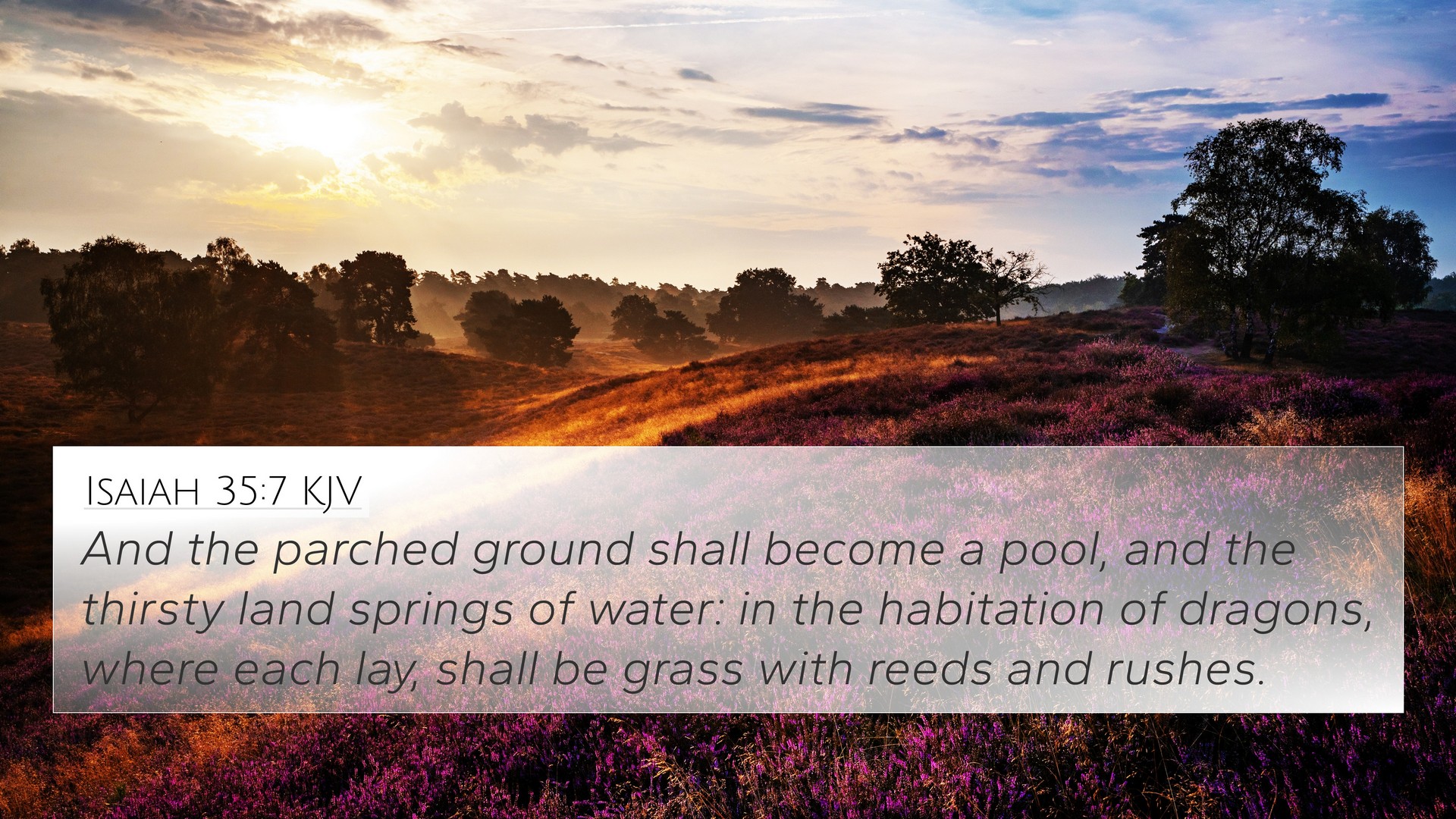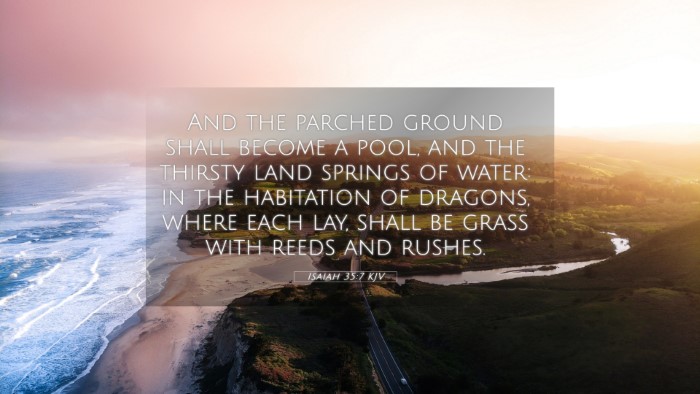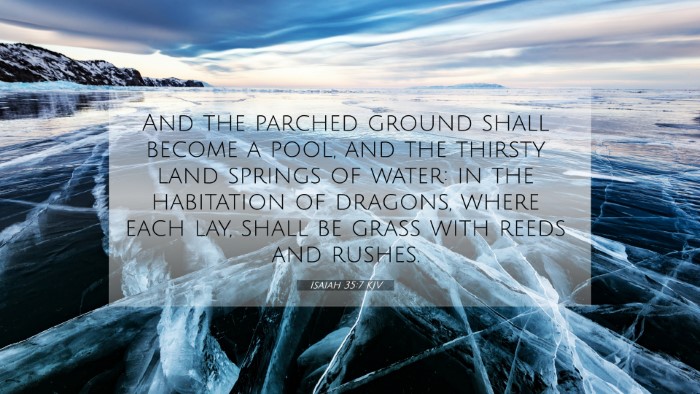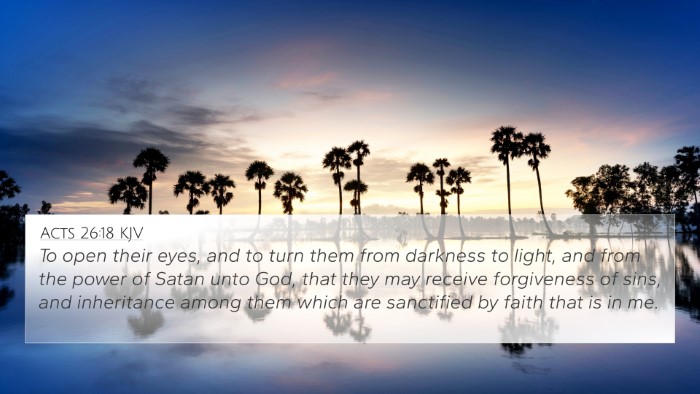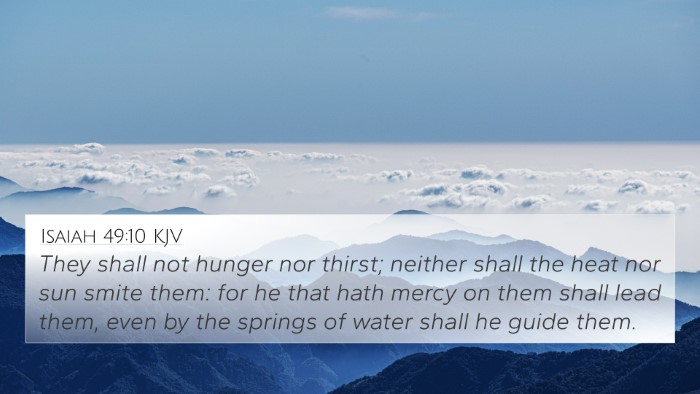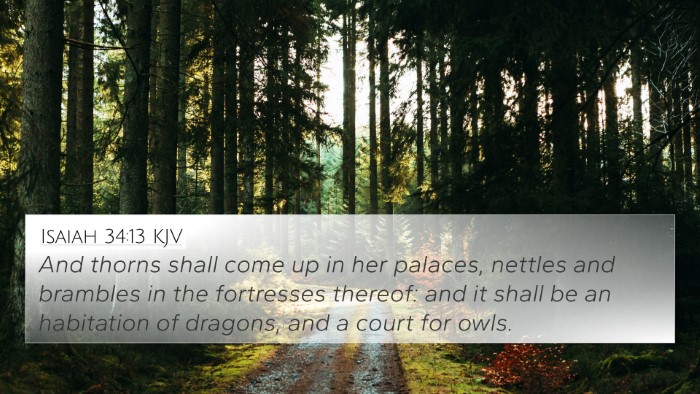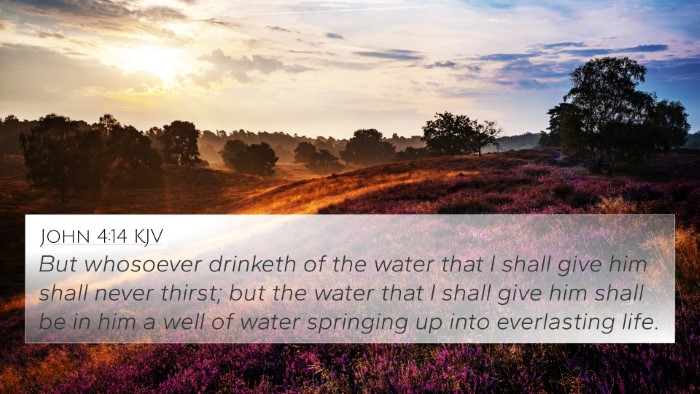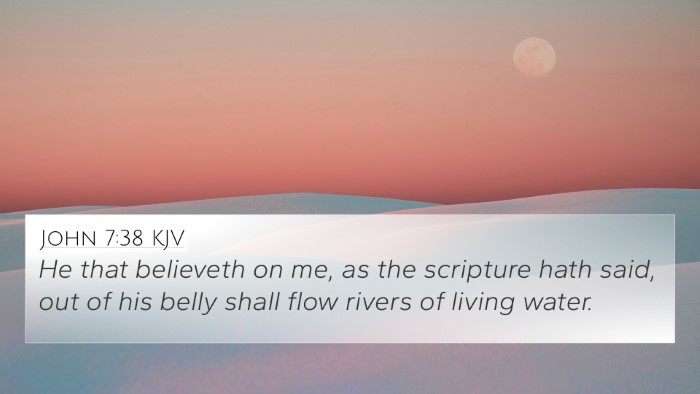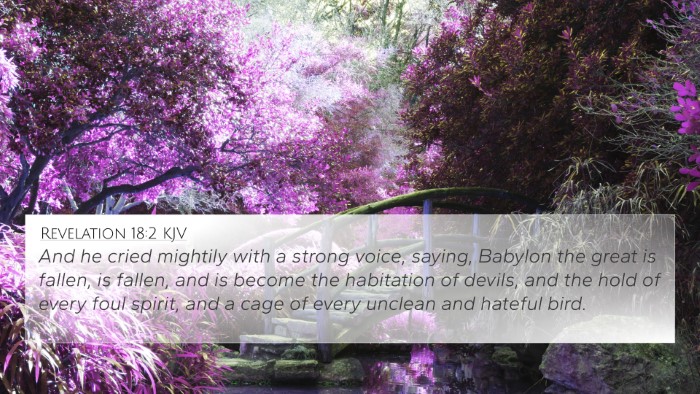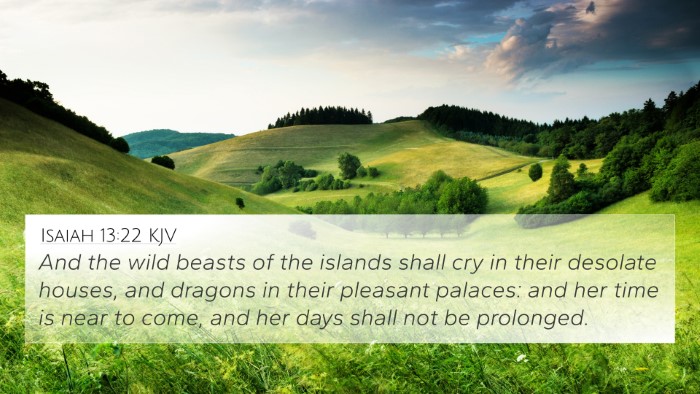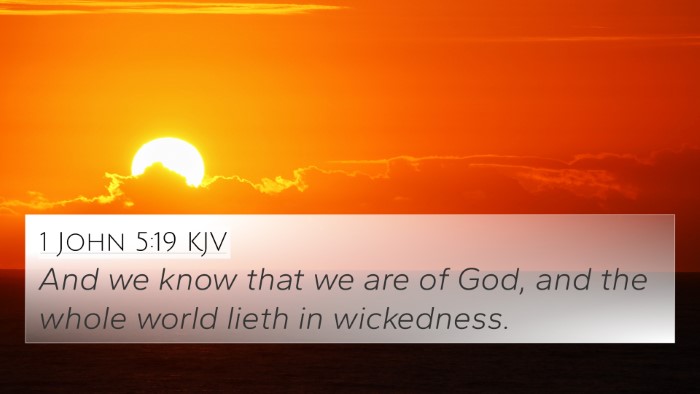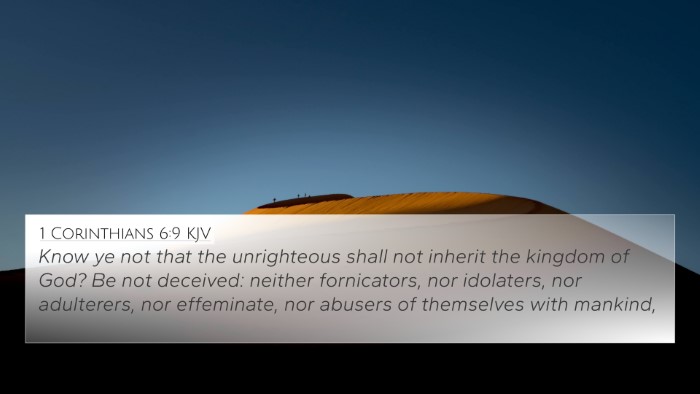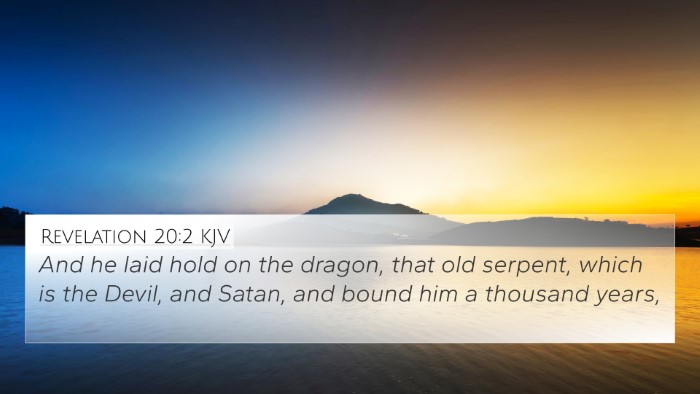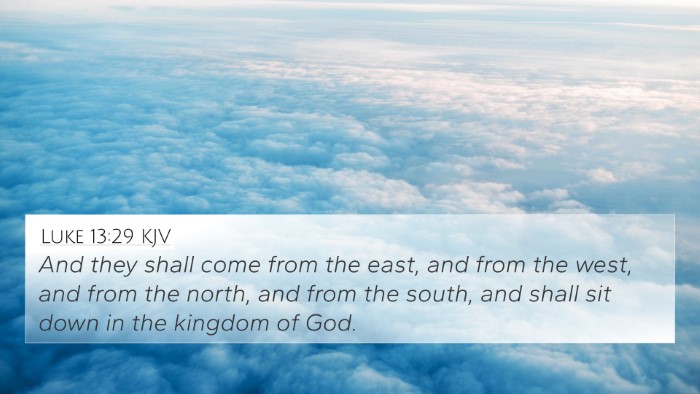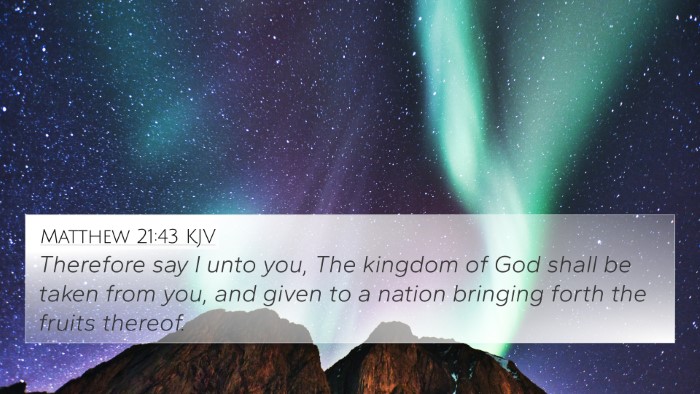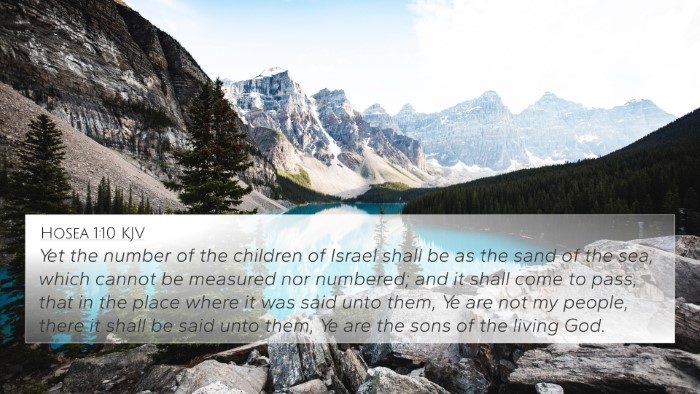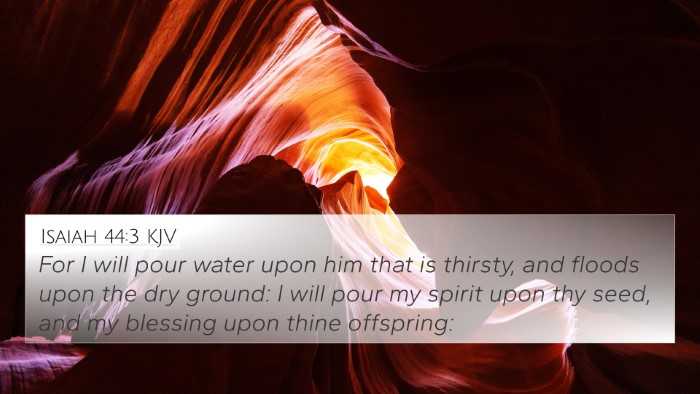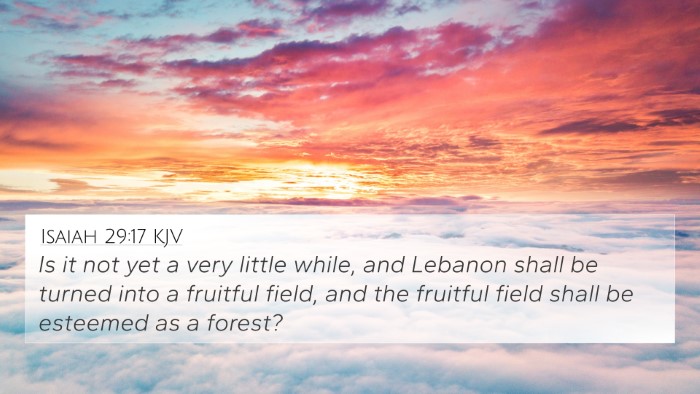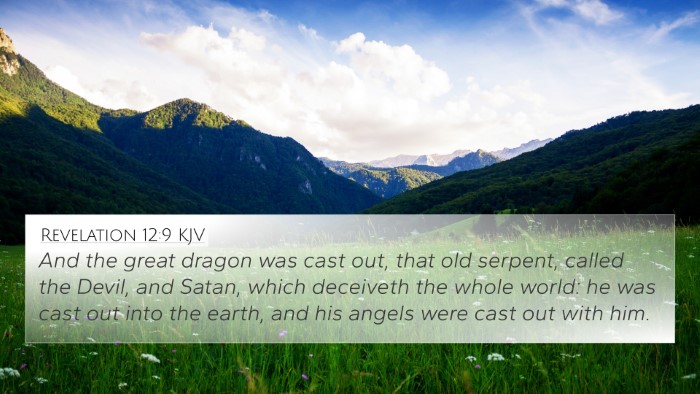Understanding Isaiah 35:7
Isaiah 35:7 states: "And the parched ground shall become a pool, and the thirsty land springs of water: in the habitation of dragons, where each lay, shall be grass with reeds and rushes." This verse signifies a transformation and restoration, conveying the profound message of hope and renewal.
The context of Isaiah 35 is a prophetic promise of comfort and rejuvenation for Israel, particularly after exile and suffering. In this chapter, the prophet describes several images that illustrate God's power to revive and refresh both nature and His people.
Commentary Insights
Matthew Henry's Commentary
Matthew Henry emphasizes the miraculous nature of God's intervention. He explains that the "parched ground" represents desolation, akin to the spiritual dryness of the Israelites during their exile. The promise of pools signifies God’s ability to bring abundance out of barrenness, reflecting His nature as a provider and sustainer.
Albert Barnes' Notes on the Bible
Albert Barnes highlights the literal interpretation of the text, suggesting that this transformation from dryness to abundance can be seen as both a physical and spiritual renewal. He argues that the "thirsty land" symbolizes communities and lives transformed by divine grace, which resonates with the broader theme of restoration throughout the Bible.
Adam Clarke's Commentary
Adam Clarke focuses on the metaphorical significance of the imagery in this verse. He interprets the "dragons" as locations of despair and hopelessness, which will be replaced by life and fertility. The "grass with reeds and rushes" can symbolize new beginnings, paralleling the restoration of life and joy in the aftermath of despair.
Thematic Connections
Isaiah 35:7 offers a rich tapestry of themes that connect with various Bible verses. Here are some direct connections:
- Isaiah 41:18-20: "I will open rivers in high places, and fountains in the midst of the valleys..." This verse reaffirms God's promise to provide sustenance and renewal.
- Psalms 107:35: "He turneth the wilderness into a standing water, and dry ground into watersprings." This verse parallels the themes of transformation seen in Isaiah 35:7.
- Jeremiah 31:12: "...they shall obtain gladness and joy; and sorrow and mourning shall flee away." This reflects the universal promise of restoration and joy.
- Ezekiel 47:1-12: The vision of water flowing from the temple illustrates God's restorative power and the life-giving nature of His grace.
- Matthew 5:6: "Blessed are they which do hunger and thirst after righteousness: for they shall be filled." This verse connects the physical renewing in Isaiah with a spiritual hunger for God.
- Revelation 21:6: "I will give unto him that is athirst of the fountain of the water of life freely." This is a prophetic fulfillment of God's abundant provision in eternity.
- John 7:38: Jesus declares, "He that believeth on me, as the scripture hath said, out of his belly shall flow rivers of living water," linking Isaiah's imagery to the New Testament teaching of spiritual renewal.
Cross-Referencing in Scripture
The process of cross-referencing Bible verses, such as Isaiah 35:7, enhances our understanding of scriptural themes and God’s promises. By linking biblical texts, we can observe how different scriptures illuminate one another, providing a deeper insight into God's redemptive plan.
- Bible concordance: Utilizing a Bible concordance is an excellent tool to find related verses that discuss themes of restoration and renewal.
- Bible cross-reference guide: Implementing a structured Bible cross-reference guide can help in tracing thematic parallels across diverse scriptures.
- Tools for Bible cross-referencing: Employing effective tools for Bible cross-referencing aids in deepening your study of God's Word.
- Cross-reference Bible study: Engaging in cross-reference Bible study enables believers to connect disparate passages and uncover comprehensive biblical truths.
Conclusion
Isaiah 35:7 encapsulates God's transformative power in both the physical and spiritual realms. As believers reflect on this verse, they can find assurance in God's ability to bring forth life in places marked by desolation. The interconnectedness of scripture provides a wealth of insights, guiding individuals on their journey of faith. By exploring these connections through cross-referencing, one can discover the richness of God's promises and understand the broader narrative of redemption woven throughout the Bible.
